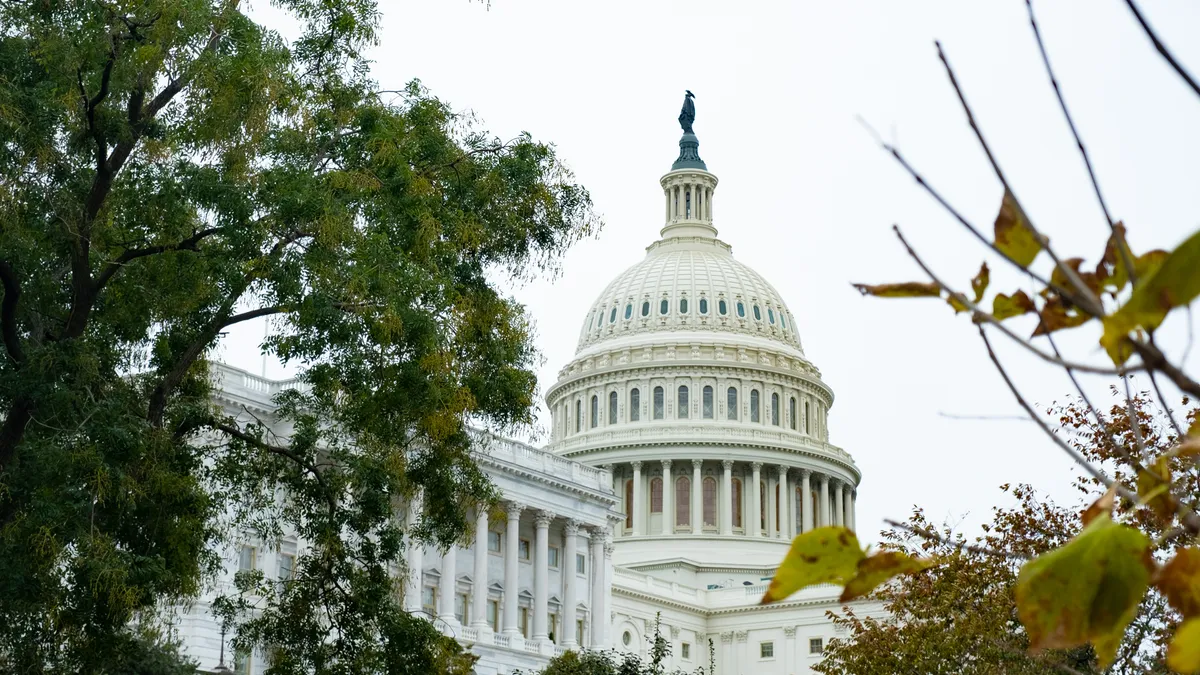The intersection of the Consumer Financial Protection Bureau (CFPB) and the concept of disparate impact in lending came to the fore twice Tuesday.
Six fintechs — PayPal, Square, Varo, Affirm, LendingClub and Oportun — asked the bureau in a letter Tuesday to give more guidance on how it will apply the theory of disparate impact when artificial intelligence (AI), machine learning (ML) and alternative credit data are used to make lending decisions.
Under disparate impact, a policy can be illegal if it has a discriminatory effect on a protected class but may not be if the intent behind a business serves a "substantial, legitimate, nondiscriminatory interest."
Specifically, the letter asks the CFPB to state that disparate impact does apply to business models that use artificial intelligence. The companies also want guidance on when a disparity in lending decisions rises to a level that might signal discrimination. The fintechs are asking the CFPB to offer a threshold as to when and how lenders should seek alternative models or data, and for the bureau to explain the extent to which lenders can collect demographic data for reviews of their own fair lending compliance.
The letter, also signed by the National Community Reinvestment Coalition (NCRC), comes in response to a March request for information (RFI) from five regulators, including the CFPB, perhaps meant to forge an interagency policy surrounding the use of artificial intelligence and machine learning. The comment period for the RFI closes Thursday. The six fintechs are members of the NCRC’s Innovation Council for Financial Inclusion.
"We cannot stand by and allow algorithms to resurrect old biases in new packages, or introduce new forms of discrimination hidden in proprietary code," NCRC CEO Jesse Van Tol said in a press release Tuesday. "Now that use of AI and ML systems is becoming more commonplace, it is critical that the bureau updates its regulations to hold lenders accountable to building underwriting systems that prioritize the rights of consumers, and particularly for historically disadvantaged and underserved groups."
The use of alternative credit data in lending profiles, at times, has had a positive impact. Online lender Upstart in 2019 reported a 27% increase in loan approvals over the previous two years and a decrease in the accompanying interest rate when using alternative credit data.
But while machine learning can help boost access to credit for populations often underserved by traditional credit score evaluations, the alternative data points — or combinations thereof — that make up the lending algorithm can still reveal unconscious bias.
Upstart, for one, gets leeway from the CFPB for taking advantage of a no-action letter. Perhaps, in being proactive and asking the bureau for feedback to tweak their own methodology, the six fintechs could garner similar regulatory grace.
"We appreciate disparate impact’s statistical, outcomes-based approach to identifying discrimination," the fintechs wrote in the letter. "We also believe this outcomes-based approach establishes disparate impact as a pro-innovation framework for preventing discrimination."
The CFPB has asserted that disparate impact applies under the Equal Credit Opportunity Act (ECOA). The fintechs are asking the bureau to update its guidance to reinforce that stance. The CFPB has issued a request for information on whether the ECOA and its Regulation B should be amended to align with two Supreme Court decisions that concern gender identity discrimination and disparate impact.
"Strong regulatory protections against discrimination in lending are critical for a just society, and for technology innovation to succeed," Armen Meyer, LendingClub’s head of public policy, said in Tuesday’s press release. "Fintech has united in support of strengthening these regulations that address the risk of digital redlining."
Credit reporting bill
Meanwhile, lawmakers on the House Financial Services Committee on Tuesday debated a bill that would create a public credit reporting agency couched within the CFPB.
Many Democrats on the panel cited a 54% jump in consumer complaints filed with the CFPB between 2019 and 2020 — the majority of which pertained to Experian, Equifax and TransUnion.
"The big credit reporting agencies have skirted responsibility time and time again," Rep. Maxine Waters, D-CA, said in Tuesday's hearing.
Amy Traub, a witness at the hearing, described the three companies’ sway on Americans’ credit as a "private stranglehold."
"A public credit registry is needed to serve the public interest and how it will develop algorithms that diminish the impact of past discrimination, deliver transparent credit scoring, improve accuracy and offer a publicly accountable way to address disputes," said Traub, the associate director of policy and research at the nonprofit Demos.
But some Republicans countered that accuracy wouldn’t improve under a government entity.
"If you believe the government is going to make less errors than the private sector, who has to be responsible for being able to have good information out and can be sued for it … you're either naive or misinformed, or worse," said Rep. Blaine Luetkemeyer, R-MO.
Other detractors took issue with the consequences of data ownership.
If credit reporting fell under the CFPB, Rep. Roger Williams, R-TX, said, "not only will you force consumers to hand over all their data to the federal government, but it will also remove all incentives for the private sector to innovate and come up with new models that will better predict the creditworthiness of borrowers."






















